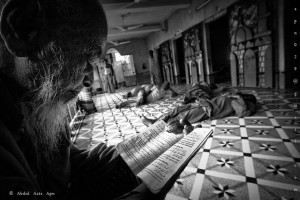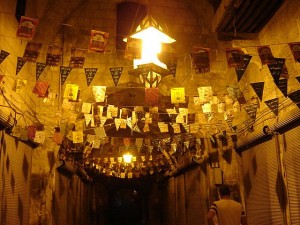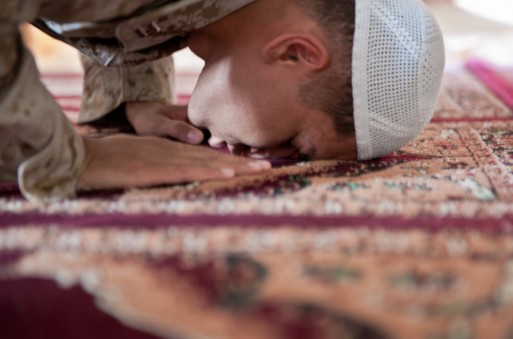This year’s Ramadan observance starts today and lasts until July 16. People around the world celebrate the tradition with a set of guidelines passed down for generations.
For Muslims, Ramadan is a month of reflection and willpower. To commemorate Muhammad and the revelation of the Quran, Muslim believers take one month out of the year to fast during the day and pray in special services all month. It’s a tradition that requires dedication to a strict schedule.
The month of Ramadan is a time when people of the Muslim faith strive not to commit sins according to religious texts. They focus on charity, prayer and fasting as the three most important components of a successful Ramadan.
When a loved one dies, most people are thrown off their routines. Not only does the heartache of losing someone weigh heavily on loved ones, a memorial service takes a great deal of energy to plan. There’s the funeral to hold, the will to divide and family to invite. A death during Ramadan can mean even more work for people who celebrate the tradition.
One common myth is that a person who dies during Ramadan is considered holier than someone who dies any other time of the year. Religious texts make no mention of this, and most Muslims believe this is false. They believe that Allah does not favor one believer over another, and that the date of someone’s death has nothing to do with whether they were a holy person.
But that’s not to say that Ramadan doesn’t have some impact on believers when someone dies.
Although Ramadan is a time for self-reflection, Muslims also believe that someone’s body must be buried as soon as possible after death. When someone dies during this month, families still need to uphold this rule, even as they attend services every day.
Another potential complication is when someone needs to travel for a funeral. A hallmark of Ramadan is that a believer should attend services at mosques every day and pray at least five times per day. It’s not always impossible to do this when someone has a funeral to attend, and it makes scheduling around prayers and services more difficult. Muslims aren’t required to fast during days that they are traveling, but they are asked to make up for days they missed after Ramadan is over. So if someone misses two fasting days to travel to another city for a friend’s funeral, he would need to spend two extra days fasting after Ramadan is over.
Instead of arriving in the morning and staying all day, guests arrive closer to evening, and stay late into the night.
The funeral tradition itself changes during Ramadan too. Normally, traditional Muslim friends and family stay at the home of the person who died up to three days after the burial. They visit all day, eating and praying with one another, then leave in the early evening. During Ramadan, guests come to the dead person’s home later than usual. Instead of arriving in the morning and staying all day, guests arrive closer to evening, and stay late into the night. Since Muslims cannot eat before sundown or after sunrise on Ramadan (with some exceptions), guests are not served any food until night falls.
The power of tradition and religious belief hold true for many people this month, even when they face the unexpected loss of someone they love.
Death is an unpredictable fact of life. It’s just as common for someone to die during Ramadan as it is during any other time of the year, yet this tradition can change the way Muslims treat the death of a loved one. The power of tradition and religious belief hold true for many people this month, even when they face the unexpected loss of someone they love.

 Ramadan Funeral Traditions
Ramadan Funeral Traditions





 “In Case You Don’t Live Forever” by Ben Platt
“In Case You Don’t Live Forever” by Ben Platt
 Our Monthly Tip: Make an “In Case of Death” File to Ease Loved One’s Grief
Our Monthly Tip: Make an “In Case of Death” File to Ease Loved One’s Grief
 Passing of Beloved Comedian Births a New Comedy Festival
Passing of Beloved Comedian Births a New Comedy Festival















Asslamu Walakum,
Mashallah I love this Article!
Report this comment